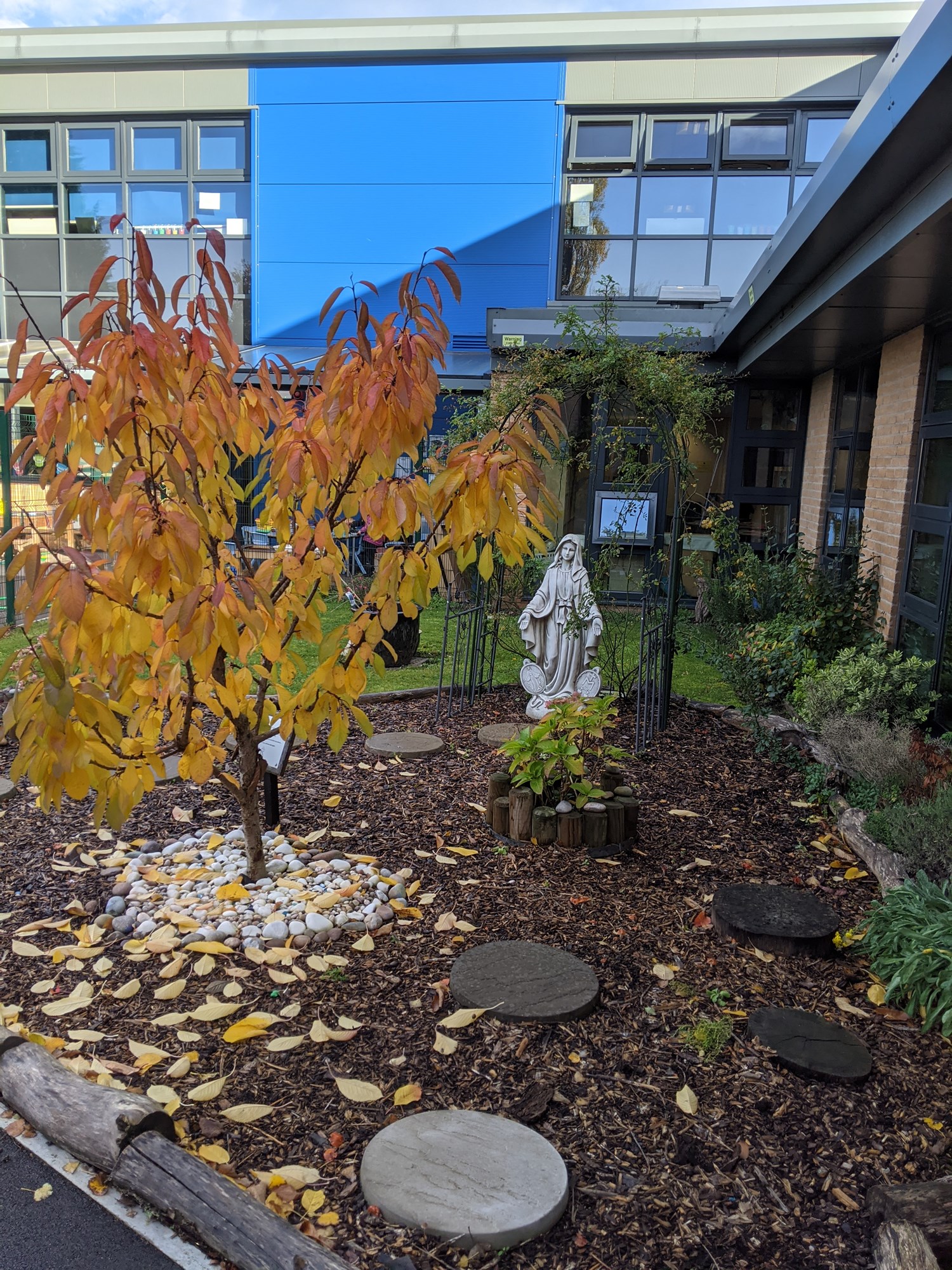
Drawing from the school's mission statement, and the example of Our Mother Mary, children are honored, cared for and believed in at Our Lady & St. Hubert's.
Every child in this school is cherished for who they are, a child of God. Therefore, we strive to provide them with an education that nourishes and celebrates the individual person, as well as rooting their personal and academic development in Gospel values and the example of Jesus Christ,
Through our 6Cs Curriculum and Project Based Learning pedagogy, Our Lady & St. Hubert's aims to provide every children with a curriculum that promotes and encourages active service - tackling global and social issues and be citizens of change. This school seeks to educate young men and women of competence, conscience and compassion, who can ultimately make a real difference in the world. Within the rapidly changing and evolving world of the 21st Century, we hope they will understand the importance of making a difference to those who need their help most. We hope our children will also serve the cause of social justice in the best way they can through their learning and classroom projects.
Religious Education is the "core of the core curriculum" in a Catholic school (Pope St John Paul II). Placing RE at the core of the curriculum in Catholic schools helps the school to fulfill its mission to educate the whole person in discerning the meaning of their existence, since "Religious Education is concerned not only with intellectual knowledge but also includes emotional and affective learning. It is in the mystery of the Word made flesh that the mystery of what it is to be human truly becomes clear. Without religious education, pupils would be deprived of an essential element of their formation and personal development, which helps them attain a vital harmony between faith and culture." (Religious Education Curriculum Directory p4). Furthermore, religiously literate children and young people are able to engage in a fully informed critique of all knowledge, "leading, for example, to an understanding of the relationship between science and religion or history, and between theology, sport and the human body." (Religious Education Curriculum Directory p4).
As Catholics we desire to follow the teachings of the Gospel revealed through the Church. We look to scripture for revelation from God which will guide us in the way he wants us to live. In the Gospels and our Church tradition we find the person of Jesus, through his teachings and interactions with people, showing us the way to live our lives. The Beatitudes (Matthew 5) encapsulate the values we want to live by and that we would want to nurture and develop in the children in our care:
Faithfulness & Integrity, Dignity & Compassion, Humility & Gentleness, Truth & Justice, Forgiveness & Mercy, Purity & Holiness, Tolerance & Peace and Service & Sacrifice.
As Catholics we also believe in the importance of developing a virtuous life. The Catechism describes a virtue as “an interior disposition, a positive habit, a passion that has been placed at the service of the good.”
A fundamental element of our Catholic Life, faith life and Religious Education is the Catholic Pupil Profile. The Catholic Pupil Profile is also a key component in the teaching of SMSVC at Our Lady & St. Hubert's. By studying the virtues and actively bringing them into our actions, faith life and community, SMVSC also becomes part of our innate behaviour. SMSVC therefore takes place within the Catholic life of the school and is not something confined only to RE, assemblies and citizenship. Schools provide opportunities for children’s’ development in SMVSC through the activities and experiences within the Curriculum (all subjects including RE) and beyond through Collective Worship, extra-curricular activities, through community links including the parish, through charitable outreach and so on. It therefore follows that the self-evaluation and inspection of SMVSC has to explore these different aspect of school life and this is the approach taken by OFSTED.
To learn more about our termly Virtues and Values click this link.
British Values
Our Lady and St Hubert’s Catholic Primary School promotes the fundamental British values of democracy, mutual respect and tolerance of those with different faiths and the rule of law through the school virtues.
All pupils are educated in a culture of inclusion, tolerance, and mutual respect, providing pupils with a set of values that enables them to play a full part in British society in service of the common good.
Democracy
At Our Lady and St Hubert’s, we:
The Rule of Law
At Our Lady and St Hubert’s, we:
Tolerance
At Our Lady and St Hubert’s, we:
Individual Liberty
At Our Lady and St Hubert’s, we:
Mutual Respect
At Our Lady and St Hubert’s, we: